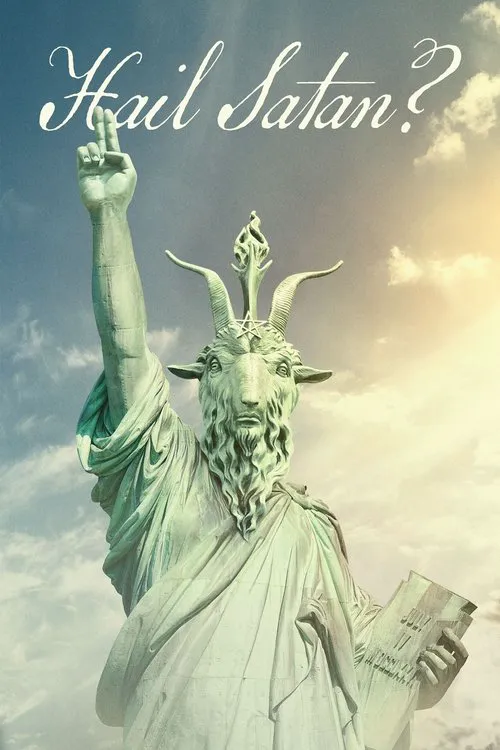Hail Satan?

Plot
Hail Satan? is a 2019 documentary film directed by Penny Lane that delves into the world of The Satanic Temple, a group that has been at the forefront of controversy and debate. Founded in 2012 by Lucien Greaves and Malcolm Jarry, the temple seeks to push the boundaries of free speech, challenge the status quo, and, by their own admission, "challenge the foundations of society." The film begins with an introduction to the Satanic Temple, showcasing their early efforts to raise awareness and spark debate through provocative public statements and actions. One of the most notable examples is their proposed "Seven-Foot-Tall, 1,500-Pound" sculpture of Baphomet, which sparked outrage when it was unveiled in Detroit's rotunda building. The reaction was not what the temple had anticipated, with many accusing them of disrespecting Christianity. As the film progresses, it becomes clear that the Satanic Temple's primary goal is not to worship Satan or engage in any kind of occult practices. Rather, they aim to question the values and assumptions that underpin modern American society. They argue that the separation of church and state is being eroded, and that the rights of non-believers are being consistently marginalized. One of the most compelling aspects of the film is its examination of the temple's most notable campaigns, including the attempt to install the Baphomet statue in Oklahoma's statehouse and the effort to stop the construction of a new Planned Parenthood clinic in New York City. In both cases, the temple's opponents claimed that their actions were an affront to Christianity and a form of "devil-worship." Through a series of interviews with key figures within the temple, including Greaves, Jarry, and other activists, the film explores the motivations behind their actions. They reveal that the temple is a deliberate, tongue-in-cheek provocation, designed to push the limits of what is considered acceptable in public discourse. Their arguments often center on the principles of free speech and the right to challenge the dominant cultural narrative. The temple's use of humor and satire is a key aspect of their strategy. By presenting themselves as a group of provocative pranksters, they seek to diffuse the tension surrounding their actions and shift the focus from their message to the over-the-top reaction of their opponents. One of the most striking aspects of the film is its portrayal of the people who oppose the Satanic Temple. Many of these individuals are interviewed on camera, revealing a deep-seated sense of outrage and fear. They believe that the temple's actions are a clear threat to the social order and that their very existence undermines the moral fabric of American society. For many of these individuals, the Satanic Temple represents a form of existential risk, a force that is constantly seeking to subvert and undermine the values they hold dear. Their fear is fueled by the sense that the temple's message is spreading, that more and more people are beginning to question the assumptions that have been ingrained in them since childhood. Despite the controversy surrounding their methods, the Satanic Temple's leaders have no intention of backing down. For them, the stakes are high, and the battle for free speech and the right to challenge the dominant cultural narrative is just beginning. As the film comes to a close, it becomes clear that the story of the Satanic Temple is far from over. The battle for public acceptance, for the right to exist as a force in American society, will likely continue for years to come. Hail Satan? is not merely a documentary about a provocative movement; it is a testament to the power of free speech, the importance of challenging the status quo, and the enduring struggle between those who seek to conform and those who seek to subvert. Ultimately, the film raises a series of profound questions about the nature of free speech, the right to challenge the dominant cultural narrative, and the very notion of what it means to be American. Is a society that cannot tolerate the existence of a group like the Satanic Temple, even if it engages in provocative and irreverent behavior, truly a society that values freedom of speech? Or is it simply a society that is unwilling to confront the contradictions and complexities at the heart of its own identity?
Reviews
Recommendations




